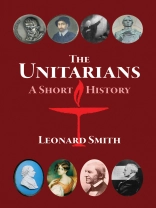This short history of Unitarianism concisely explores the origins and progress of a worldwide liberal religious tradition committed to principles of freedom, reason, and tolerance.
Unitarians have exercised an influence out of proportion to their minority status. Through their agency, Poland and Transylvania enjoyed periods of religious toleration. In Great Britain, as pioneers of early modern higher education in Dissenting Academies, they applied Enlightenment reasoning to the study of religion, science, and the humanities. In the United States, they led the Transcendentalist movement, the first major flowering of American intellectual culture.This book traces the history of the separate but related Unitarian (and Unitarian Universalist) denominations in Europe, Great Britain, and the United States, and touches on the new groups that have arisen, or are in the process of emerging, elsewhere in the world.
Jadual kandungan
Foreword by Charles A. Howe
Preface to the Second Edition
Preface and Acknowledgments to the First Edition
Part 1: Europe
1. Michael Servetus
2. Sebastian Castellio
3. The Polish Brethren
4. Faustus Socinus
5. The Socinian Diaspora
6. Francis Dávid
7. Transylvanian Unitarianism after Francis Dávid
8. The Twentieth Century
Part 2: Great Britain
9. Origins: Native or Exotic?
10. Protestant Nonconformity
11. Beginnings of the Arian Movement
12. ‘Humanitarian’ Unitarianism
13. Becoming a Denomination
14. Spreading the Message
15. Nineteenth-Century Advance
16. Theological Developments
17. Toward a New Century
Part 3: America
18. Origins
19. The Arminian Movement
20. The Unitarian Controversy
21. The Transcendentalists
22. The Search for Consensus
23. Twentieth-Century Renaissance
24. American Universalism
25. Unitarian Universalism
Part 4: A Global Religion
26. Unitarianism in Africa and Asia
Appendixes
A Bibliographical Essay: References and Further Reading
Glossary
Mengenai Pengarang
Leonard Smith was principal of the Unitarian College Manchester from 1991-2002, and Bishop Fraser Lecturer in Ecclesiastical History (part-time) in the University of Manchester.







![perlindungan daripada Brian Schrag & Julisa Rowe: Community Arts for God's Purposes [Chinese] 貼近神心意的社群藝術 perlindungan daripada Brian Schrag & Julisa Rowe: Community Arts for God's Purposes [Chinese] 貼近神心意的社群藝術](https://static.worldofdigitals.com/thumb_webp/740/9781645083740.webp)




